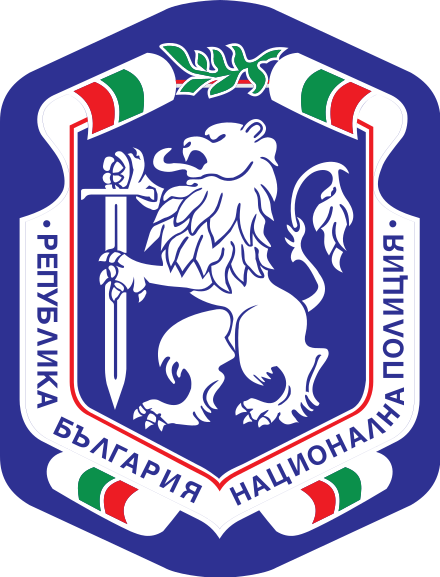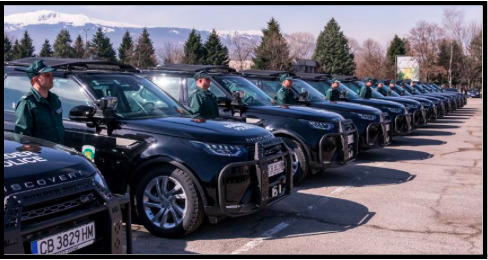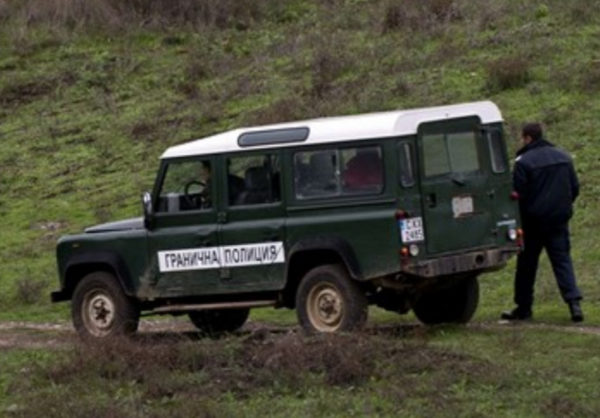The respondent, a 27-year-old Jordanian man, was pushed back from Bulgaria to Turkey on the 25th of March 2022. Is was his second time being pushed back. The respondent was travelling with a 25 year-old man from Morocco.
According to the respondent, two days prior to the pushback the transit group stopped at a shop to buy backpacks, food and water, and then at around 11:00 took a mini bus to Lelapaşa (which drove for 30 minutes). Once they arrived at Lelapasa they reportedly walked for five hours in the direction of Uzunbayir until they reached the Bulgarian. The transit arrived at the border at four in the afternoon, which was described by the respondent as being surrounded by trees with an unpaved road that led to the Bulgarian side; on the Turkish side the respondent could see a lot of reeds. Then they crossed into Bulgarian territory.
Using a map on a phone to guide them, the respondent and his friend reportedly walked for three towards Yambol, mainly walking during the night and resting for a couple of hours in the day when they passed by a village or a city. On the 28th of March, at around 10 in the morning, the transit group decided to enter the city of Yambol to look for a bus station but were apprehended on the side of road 53 on their way there. According to the respondent, a car began to drive behind them with two men inside; the vehicle then pulled up beside them and the two men began talking to the transit group in Bulgarian from inside the car. They proceeded to ask the group for their papers in English.
The vehicle was a described by the respondent as being a white blue-striped Kia with Bulgarian writing on the left side of it, as well as a logo with a lion inside of it, and it had “Police”on written in English in a large blue font. The license plate was a reportedly Bulgarian.
The respondent reported that the two uniformed men were dressed in blue shirts with a logo of a lion on their left arm, as well as ranks on the shoulder with two lines and Bulgarian writing below it, likely Полиция, which is the Bulgarian word for “Police“. The respondent later identified the insignia through Image 1.

Image 1: Bulgarian Police insignia.
The transit group told the uniformed men through English that they did not have any papers and that they were refugees, recounted the respondent, to which the officers responded to by asking them for any proof of their legal presence in Bulgaria, which the respondent and his friend did not have.
The two men in uniform subsequently got out of the car and asked the group to stand next to the blue car so they could be searched, recalled the respondent. Meanwhile, one of the men in uniform had made a phone call and was talking on the phone in Bulgarian. The respondent reportedly tried to tell him that they wanted to go to the camp, but the officers just slapped him hard in the face, screaming at him to remain silent and not move. The uniformed men then asked the respondent and his friend where they were from and how they got to Bulgaria.
Some civilian cars were passing by as this was happening, explained the respondent.
30 minutes later, five more men arrived in two separate cars, the respondent recalled. He identified one vehicle as a black discovery land rover with “border police” written in English on the front and a logo on the side, verified by Image 2, and the second car as an old green Jeep with Bulgarian writing on the side, verified by image 3; both cars had “BG” in there license plate.


Image 3: Bulgarian Police Jeep
Three uniformed men were sat in the black vehicle and two more uniformed men were in the green Jeep. Four of men were wearing sacramento green jackets and pants with “Police” written on their backs in white, one man was wearing a shirt that had the Bulgarian flag stitched on the right arm sleeve, and the sixth man was wearing a long-sleeved forest green shirt and pants, recalled the respondent.
Reportedly, the uniformed men didn’t talk to the respondent and his friend but loaded them into the trunk of their jeep that was then driven to the pushback point at the border. When asked to describe the inside of the car, the respondent said the trunk itself was 2 by 1 meters in size, with nowhere to sit. The driving was reportedly fast and careless, first on a paved road and later in the mountain. According to him, they were driving for about an hour and a half. The respondent could see outside as they reportedly drove through many villages. About 40 minutes into the drive they reached mountainous and forested areas, recalled the respondent.
They arrived near the border fence surrounded by a forest. When asked to describe his surroundings, the respondent said there was a door in the fence with cameras planted everywhere. He further stated that the two uniformed men who were sitting in the jeep and the transit group were the only ones at the site. The uniformed men then reportedly took the respondent and his friend out of the trunk and started slapping and punching them for about 3 minutes. They were then told to remove their jackets, and give their phones and money to the officers. He recalled that the uniformed men were armed with batons and screamed at the respondent and his friend to give them everything they had. “We were afraid so I gave everything I had but my Moroccan friend was hiding 20 Euros in his underwear. We didn’t give it, they are bandits, they can’t be officers”. The respondent described the baton as being black and made of plastic. The phones, money, jackets, shoes, and backpacks were not returned to the respondent.
The respondent said the officers spoke english to them and Bulgarian among each other.
The officers then reportedly beat the respondent with batons and subsequently forced the group through the door in the fence. The respondent said the door was two meters in height and didn’t look like an official door as it was located in the middl of an isolated wooded area. As they were being pushed back through the door, one of the uniformed men pulled his fire arm from the holster, pointed it at the respondent and said “run” while he began to count, explained the respondent.
Once back in Turkey, barefoot, they began to walk. “We were so exhausted and thirsty, we walked in the forest for 4 hours until we arrived at a highway”. Another two hours passed as they walked on the side of the road before they reached Dereköy, where some people gave them food and water. The respondent then said a person gave them a ride to Kirklareli for 20 Euros.
